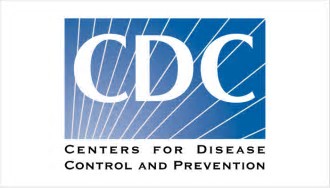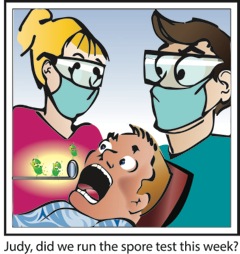Effective sterilization is essential to protecting patients and staff in the dental setting. Biological monitoring,…
Nationwide Measles Outbreak a Reminder for DHP to Screen Patients

Measles is a highly contagious virus that lives in the nose and throat mucus of an infected person. It can spread to others through coughing and sneezing. If other people breathe the contaminated air or touch an infected surface and then touch their eyes, nose, or mouth, they can become infected. Measles is so contagious that if one person has it, up to 90% of the people close to that person who are not immune will also become infected.
Measles Prevalence
In 2000, measles was declared eliminated from the United States thanks to a highly effective vaccination program. However, since that time, there have been a few outbreaks largely attributed to an increase in the number of travelers who get measles abroad and bring it into the U.S. and/or further spread of measles in U.S. communities with pockets of unvaccinated people.
The current measles outbreak threatens to be the largest one yet since 2000. According to the U.S. Centers for Disease Control and Prevention (CDC), from January 1 to April 19, 2019, 626 individual cases of measles have been confirmed in 22 states, an increase of 71 cases from the previous week.
For Dental Personnel
With the measles outbreak nationwide, dental healthcare personnel (DHP) need to make sure they are screening patients for measles and other aerosol transmissible diseases (ATDs) prior to treating patients. In California, Cal/OSHA’s Aerosol Transmissible Disease Standardrequires healthcare providers to follow certain precautions to prevent exposure to ATDs.
Because DHP do not treat patients for symptoms caused by ATDs and do not perform any procedures that are considered “cough-inducing” by the CDC, DHP are conditionally-exempt from Cal/OSHA’srequirements, if all of the following conditions are met:
- Dental procedures are not performed on patients identified as ATD cases or suspected ATD cases. The dental practice screens patients for airborne infectious disease, including measles, using health history forms, and defers dental treatment for any patients with active infection.
- The office follows state dental infection control requirements and CDC recommendations for dental infection control. The office’s Injury and Illness Prevention Program (IIPP) includes a written procedure for screening patients for ATDs that is consistent with CDC’s infection control recommendations for dental settings. This procedure is followed before performing any dental procedure on a patient to determine whether the patient may present an ATD exposure risk.
- DHP have been trained on the ATD screening procedures in accordance with the dental office’s IIPP.
While only California DHP must comply with these requirements, these are prudent practices for all DHP.
For our OSHA Review subscribers… The March/April 2018 issue of OSHA Reviewin Section X of your binder covers ATD requirements in California.
Since 1992, OSHA Review, Inc. has provided dental professionals with comprehensive programs to support regulatory compliance and infection control. We are a registered continuing education provider in the state of California, specializing in Dental Practice Act, infection control, and OSHA training.


